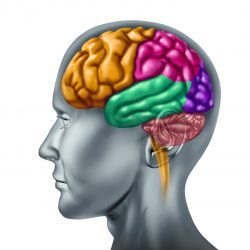Consequences of the ‘Parkinson’s Mask’: The change is subtle over time. Mostly, there is a softness to your voice, your smile is not as big, and you don’t blink your eyes as much.
Subtle differences in the before/after pictures (I’m also younger in the without PD pictures):
Because I do a lot of teaching, I get a lot of teaching evaluations and critiques. Here are two comments from two medical students regarding my lecturing in Immunology (one of the medical school courses I co-direct and teach in):
“Dr. Church is a wonderful lecturer! Not only is he easy to follow during lectures as far as explaining concepts is concerned, but his dedication to his students, their questions, and their general well-being never ceases to amaze me.
“Dr. Church should take it as a huge compliment that he was able to convey enthusiasm about the topic and inspire passion in students despite his expression often being limited by Parkinson’s.”
LSVT LOUD® can certainly help boost the volume and tone of your voice. If you use it and practice, it will make a difference. My Speech Pathologists told me that we think we’re speaking at a normal volume but we’re really not. Your goal is to train your brain to really speak loud (almost shouting). You can also practice making accentuated facial motions, trying to accentuate what’s going on with your face. You can practice smiling large, and other facial exercises (try practicing your vowels). I have never had a loud voice and I’m not an overly expressive person; having Parkinson’s has softened everything. When you listen to someone speaking, you also listen with your eyes; thus, the reduction in visual cues makes it harder to understand you. To continue to get these positive comments shown above, I need to be constantly practicing on speaking louder and working on my facial exercises.
“Take the emotional temperature of those listening to you. Facial expressions, voice inflection and posture give clues to a person’s mood and attitude.” John C. Maxwell
“People are like stained – glass windows. They sparkle and shine when the sun is out, but when the darkness sets in, their true beauty is revealed only if there is a light from within.” Elisabeth Kubler-Ross
Resist the evolving Parkinson’s mask: The worst-case scenario to what I’ve been describing is the total outward masking/blocking of your inner self and its expression. We must resist that change, we must really work hard to speak louder and to over-accentuate our facial motion to show the emotion that’s within us. Change may be subtle but change is inevitable for most of us regarding this mask. Stay vigilant. Let’s keep working on talking louder and being more expressive. The inner you is still there, it’s functioning and still wanting to get out. Keep working.
“When we can let go of what other people think and own our story, we gain access to our worthiness—the feeling that we are enough just as we are and that we are worthy of love and belonging. When we spend a lifetime trying to distance ourselves from the parts of our lives that don’t fit with who we think we’re supposed to be, we stand outside of our story and hustle for our worthiness by constantly performing, perfecting, pleasing, and proving. Our sense of worthiness—that critically important piece that gives us access to love and belonging—lives inside of our story.” Brené Brown
Cover photo credit: http://7-themes.com/6793576-free-pacific-ocean-wallpaper.html






I thoroughly enjoyed this piece as it will make me more aware the next time I get to see my “little brother” in person…springtime I hope
Love Kitty
PS you are still a handsome man…no prejudice on my part of course.
LikeLiked by 1 person
Thanks Kitty, really appreciate the note. Hopeful to see y’all in ’17, love always, Frank
LikeLike
Good topic for discussion, Frank. I equally enjoyed this interview by Kelsey Phinney. Thanks to you both for broaching the subject and championing the cause!
http://www.davisphinneyfoundation.org/blog/facial-masking/?utm_source=NEW+Master+List+%28simplified+segments%29&utm_campaign=c711200997-EMAIL_CAMPAIGN_2017_01_16&utm_medium=email&utm_term=0_d7445ab902-c711200997-181337201
LikeLiked by 1 person